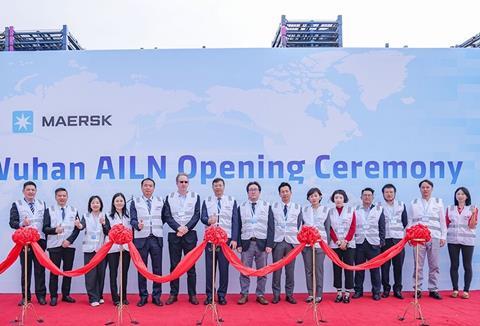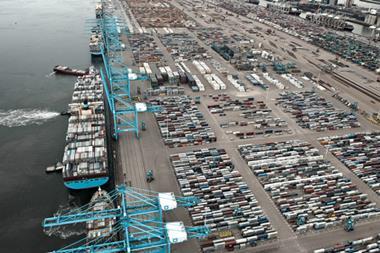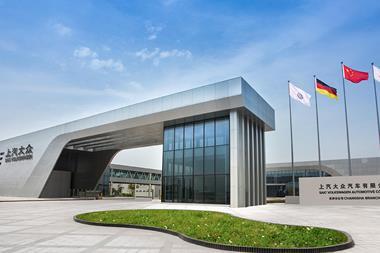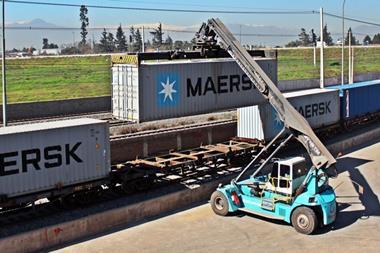Nissan has chosen Maersk to build and operate a dedicated warehousing and distribution facility for parts handling near the inland river port of Yangluo in Wuhan, China. It is the latest development for Maersk’s expansion from maritime to inland logistics services.

Maersk will provide inbound parts services across the 3,000 sq.m warehouse, including pallet management, inspections, mix-bundling, quality assurance and other value-added services.
“Nissan is an extremely important customer for Maersk, and we are delighted to expand our services from ocean to inland logistics,” said Lee Michael Sissons, head of ocean fulfilment, Asia Pacific Customer Delivery. “With this long-term partnership approach, Maersk is committed to providing Nissan high quality, reliable and integrated services across the supply chain. We will also work with our customer to drive CO2 reductions in the future.”
Maersk drew up a strategy to develop inland logistics services back in 2019, with a focus on automotive logistics and chemicals. Traditionally a provider of maritime services, the company has made a number of investments since then in line with its plans to grow the percentage of revenue it derives from inland integrated logistics services.
The company has been providing Nissan with ocean services for more than a decade but over the last three years the companies have been looking to expand into other areas of logistics and services.
Maersk also recently signed an MoU with Kumho Tire, which is based in South Korea. Maersk is providing 4PL supply chain management services for an initial five-year period, as well as domestic intermodal services for three years. Maersk said it expects to handle more than 40,000 FEU containers (40-ft equivalent units) per year starting from 2024.
Nissan’s joint venture in China with Dongfeng Motor – DFL – plans to launch 10 locally developed NEVs on the Chinese market by 2026. Four of those models will be Nissan brand vehicles, with the first model to be launched in the second half of 2024. DFL will begin a vehicle export business in 2025 with an initial export target of 100,000 units per year.






































No comments yet